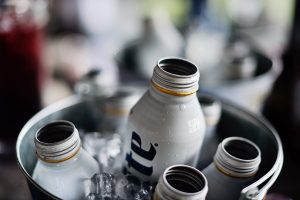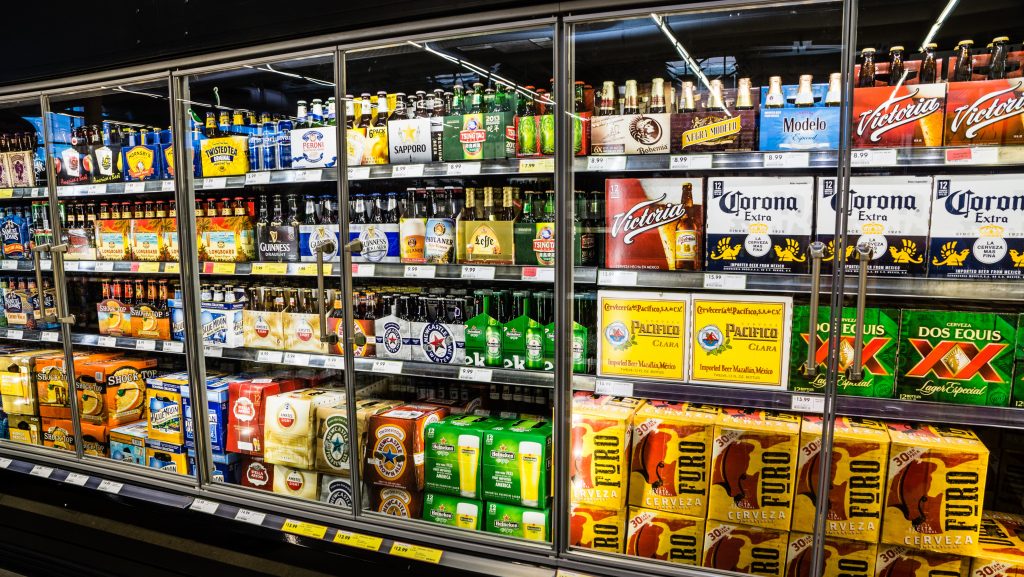BEER-WARE OF WHAT YOU SAY: Can my literally true ad still be false advertising?
By: Bridgetower Media Newswires//August 20, 2019//
BEER-WARE OF WHAT YOU SAY: Can my literally true ad still be false advertising?
By: Bridgetower Media Newswires//August 20, 2019//
By Jeunesse Rutledge
Reinhart Boerner Van Deuren

If you’re in the business of brewing (or any other advertising), be careful about trash talking the competition, even if what you are saying is “technically right.”
Most companies know they can be held liable by consumers or competitors for false or unsupported claims in their advertising. But what if an advertising claim is literally true? Can a company still be held accountable for false advertising for these literally true statements? As the recent MillerCoors suit against Anheuser-Busch re-igniting the “beer wars” demonstrates, the answer is “yes.”
Unlike most false advertising suits brought under the federal false advertising statute (the Lanham Act), the MillerCoors suit illuminates a rather gray area of advertising law — the Lanham Act’s prohibition of literally true statements that give off a materially false or misleading impression. While demonstrably false ads are generally presumed deceptive, false advertising claims based on literally true statements require evidence that the ad actually caused consumer confusion.
Enter MillerCoors’ fight against “Corngate.”
In its highly‑publicized campaign officially launched during this year’s Super Bowl, Anheuser-Busch systematically targeted MillerCoors’ use of corn syrup in Miller Lite and Coors Light, while highlighting that Anheuser-Busch uses no corn syrup in its own comparative beer, Bud Light.
In the ads, Anheuser-Busch makes various representations about MillerCoors’ use of corn syrup, including:
Anheuser-Busch does not “brew Bud Light with corn syrup.”
“Bud Light, Brewed with no Corn Syrup.”
Statements that Miller Lite and Coors Light are “made with” corn syrup, and Bud Light is “made with . . . no corn syrup” in ads comparing ingredients of Miller Lite and Coors Light with Bud Light.
Ads featuring an image of Bud Light accompanied by the phrase “100% less corn syrup than Coors Light.”
Ads featuring an image of Bud Light accompanied by the phrases “No corn syrup. No preservatives. No artificial flavors.”
MillerCoors admits that most of these statements are literally true because its fermentation process does actually use corn syrup — but not high-fructose corn syrup. So how did MillerCoors get a preliminary injunction in May 2019 barring some of these ads?
According to MillerCoors’ complaint, Anheuser-Busch “plotted an extensive and pervasive advertising scheme” to capitalize on reported focus group testing which demonstrated “consumers do not understand the difference between ordinary corn syrup” and HFCS, which consumers tend to avoid.
MillerCoors alleged that Anheuser-Busch misled consumers because it failed to disclose: (1) there is no corn syrup in the finished Miller Lite or Coors Light product; (2) corn syrup and HFCS are different; and (3) Anheuser-Busch uses corn syrup and HFCS in a variety of its products.
Using consumer surveys and social media evidence, MillerCoors also argued that Anheuser-Busch’s ads create the “demonstrably false” impression that Miller Lite and Coors Light are unhealthier than Bud Light solely due to the use of corn syrup. MillerCoors also took issue with the implied inferiority claim in Anheuser-Busch’s ads — that the presence of corn syrup in MillerCoors’ beer makes them inherently inferior to Bud Light.
The court’s May 2019 injunction highlights the intricacies courts consider with these types of claims. In its 49-page decision, the court preliminarily enjoined Anheuser-Busch from using statements that Bud Light contains “100% less corn syrup” than Miller Lite and Coors Light and that Bud Light contains “no corn syrup.” The court also enjoined Anheuser-Busch’s list of “ingredients” for Miller Lite and Coors Light as containing corn syrup.

The court found that both of these statements could lead a reasonable consumer to believe the final MillerCoors products actually contain corn syrup, when they do not. However, the court refused to enjoin some of the literally true statements, such as standalone claims that Miller Lite and Coors Light are “brewed with,” “made with,” or “use[s]” corn syrup.
On Sept. 4, the court expanded its preliminary injunction to Anheuser-Busch’s packaging to bar the “no corn syrup” language and icon after Anheuser-Busch exhausts the packaging on hand as of June 6, 2019 or March 2, 2020, whichever occurs first.
Seeking a permanent injunction that stops all of the ads, MillerCoors is currently appealing the partial injunction to the 7th Circuit Court of Appeals.
MillerCoors is not the only company challenging literally true statements involving implied health and superiority in advertising campaigns.
Kraft Heinz recently asked the National Advertising Division to condemn Unilever’s ketchup ads, which allegedly supported the false premise that HFCS‑free products are healthier than products containing HFCS (such as Kraft Heinz’s ketchup). Unilever created an ad campaign cautioning consumers to avoid ketchup containing HFCS because HFCS is “evil” and “fake,” and employed product labels for its ketchup containing the words “No High Fructose Corn Syrup” next to the words “Real Ketchup.”
While the NAD refused to condemn Unilever’s entire campaign, it did recommend Unilever discontinue using claims in its website that its products are “better” for consumers because it gave the unsubstantiated impression that its ketchups are healthier than others solely due to the absence of HFCS.
In 2016, two federal courts ordered Chobani to discontinue parts of its #NOBADSTUFF campaign, which listed competitors’ ingredients, highlighting the ingredients sucralose and potassium sorbate — and stating that sucralose contains chlorine and potassium sorbate that is used in pesticides. The courts found, while these statements are indeed literally true, they create the false impression that the competitors’ products are unsafe to eat.
Finally, in 2018, the 7th Circuit affirmed a permanent injunction related to Arla Foods’ commercials, which made statements that its cheese product contains no “weird stuff” and that consumers “can feel good serving” its cheese, as compared to Eli Lily and Co.’s cheese product, which contains the growth hormone rbST. Again, in spite of these statements being literally true, the court enjoined Arla Foods’ commercials because they implied rbST‑free foods are healthier than foods containing rbST, when in reality there is no “significant difference” between the two.
While certainly less common than cases involving demonstrably false or misleading ads, these “literally true” cases highlight the importance of considering the full impact of a prospective ad before running it. “Literally true” does not always equal “100% free from challenge.”
So the next time your company wants to run an ad, especially a comparative ad, fully consider the ad’s implications to avoid falling into the Lanham Act’s “gray area,” where statements that are literally true can still be found to be “false” advertising.
Legal News
- Amended complaint filed in federal court against State Bar of Wisconsin seeks punitive damages
- United Healthcare suit against cancer drug distributor time-barred
- Trump’s Wisconsin visit warns of jail time if he violates a trial gag order
- Dane County court overturns residential solar decision
- Judge faces formal complaint from state board
- Bankruptcies up 16% in U.S.
- (Updated) Wisconsin law enforcement clash with pro-Palestinian Madison protestors
- Gov. Evers seeks applicants for Lafayette County Circuit Court
- Complaint against University filed by Wisconsin law firm over $1.9M given to Palestinian students
- Hush money trial judge raises threat of jail as he finds Trump violated gag order, fines him $9K
- Active shooter ‘neutralized’ outside Wisconsin middle school
- Audit finds Wisconsin Capitol Police emergency response times up, calls for better tracking
WLJ People
- Power 30 Personal Injury Attorneys – Russell Nicolet
- Power 30 Personal Injury Attorneys – Benjamin Nicolet
- Power 30 Personal Injury Attorneys – Dustin T. Woehl
- Power 30 Personal Injury Attorneys – Katherine Metzger
- Power 30 Personal Injury Attorneys – Joseph Ryan
- Power 30 Personal Injury Attorneys – James M. Ryan
- Power 30 Personal Injury Attorneys – Dana Wachs
- Power 30 Personal Injury Attorneys – Mark L. Thomsen
- Power 30 Personal Injury Attorneys – Matthew Lein
- Power 30 Personal Injury Attorneys – Jeffrey A. Pitman
- Power 30 Personal Injury Attorneys – William Pemberton
- Power 30 Personal Injury Attorneys – Howard S. Sicula












